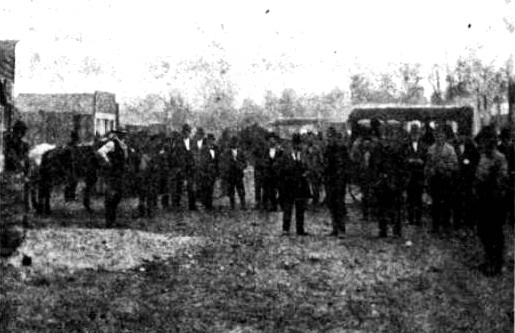In the rough and tough world of Joplin’s saloons, it seems excitement was never far away.
Henry Moon, the proprietor of the Silver Moon Saloon in August 1904, did not suffer fools. Will Sowder was in a bad mood. It ended, of course, with bloodshed.
Sowder, whose real name was Will Davis, was the stepson of Deputy Marshal Frank Sowder. Perhaps Sowder felt this relationship gave him special privileges. He had already faced arson charges earlier in the year, but was acquitted. Or maybe he just didn’t care after a night of heavy drinking with his friend Mike Ryan. In any event, Sowder got into an argument with Moon. Heated words were exchanged. Sowder lunged behind the bar and hit Moon. Moon hit the floor and Sowder jumped on him. He was in for a surprise, though, because Moon was able to draw his revolver. With a squeeze of the trigger, Moon shot Sowder in the leg, then hit him over the head with the gun. Sowder staggered and fell, leaving a pool of blood on the floor.
An ambulance picked Sowder up and took him to his home at the southeast corner of Fourteenth and Wall Streets. There he received medical attention from Dr. Tyler who felt that Sowder would recover from his wounds without any problems. Moon, however, was hauled off to the home of Justice Potter who turned Moon over to Constable Arch McDonald. Moon bonded out after he ponied up $1500. He refused to talk to a Joplin Globe reporter about the incident.
In the end, it was just another night in Joplin.
Source: The Joplin Globe



